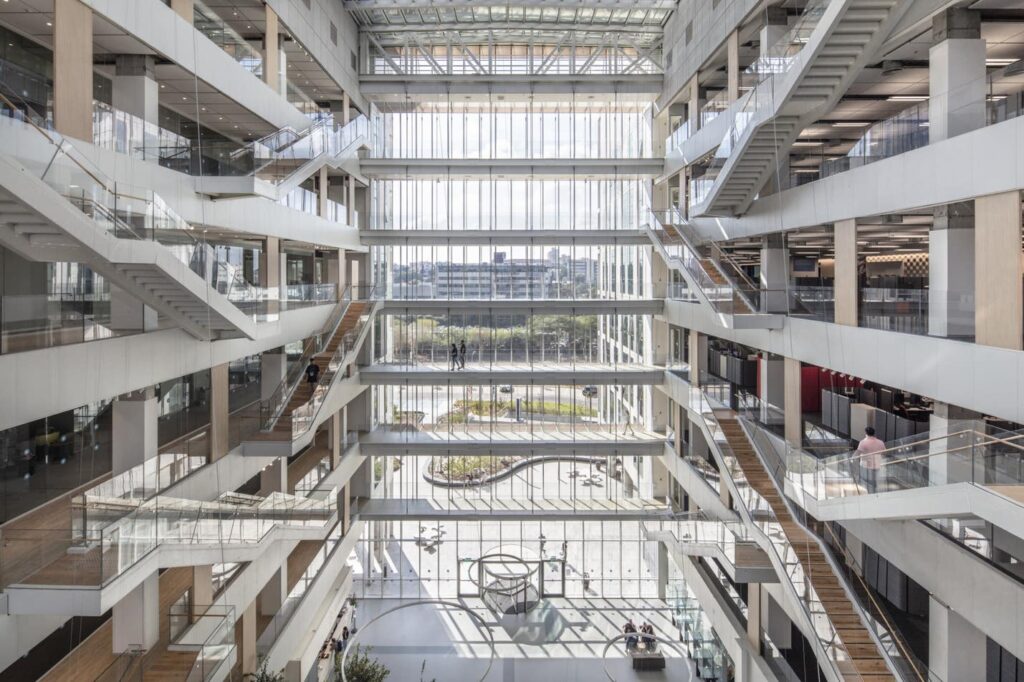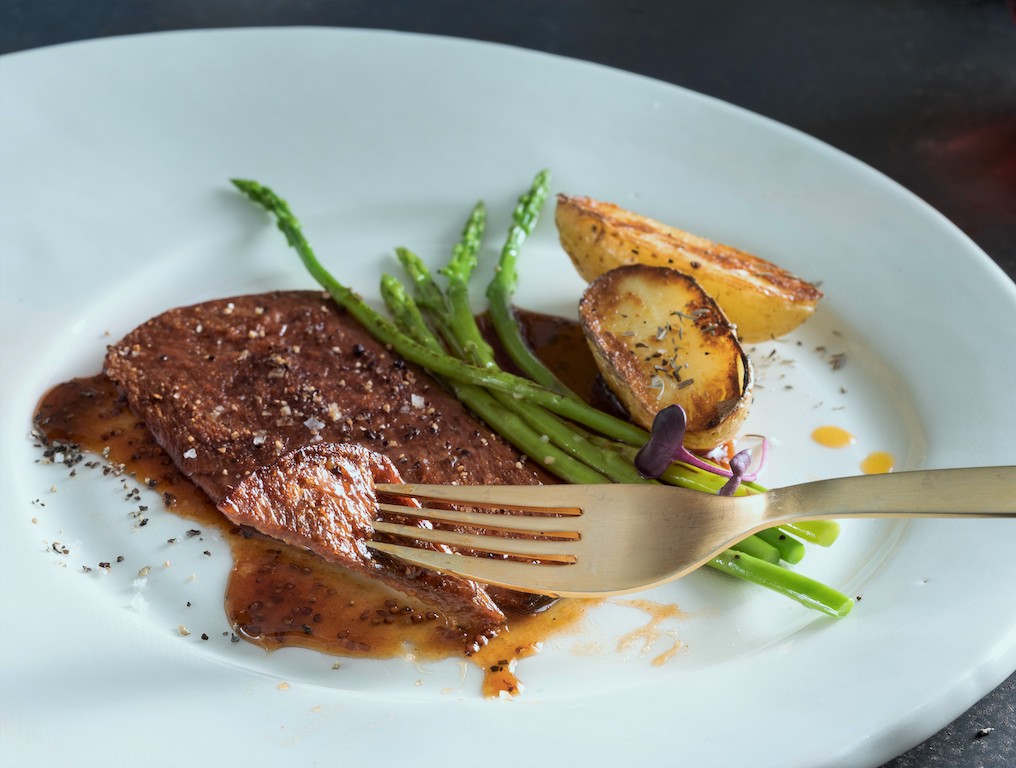3 Mins Read
Israeli cultivated meat manufacturer Aleph Farms has announced the acquisition of a manufacturing facility in Modi’in, Israel, and related assets from biotechnology firm VBL Therapeutics, along with a new manufacturing agreement with ESCO Aster in Singapore.
Aleph Farms says it’s moving closer to increasing its production capabilities with its two new arrangements in key markets. Israel ranks second globally in cultivated meat investments, and Singapore is currently the only country that has approved cultivated meat for sale and distribution.
Aleph says it plans to bring its thin-cut steak grown from cells to market in both Israel and Singapore.
A clear roadmap to scalability
“Building up production capacity quickly in those locations while keeping capital investment lean provides a clear roadmap to scalability,” Didier Toubia, CEO, and co-founder of Aleph Farms, said in a statement. “Beyond Israel and Singapore, we plan on building additional strategic assets worldwide as part of our effort to bring more security and resilience to food systems.”

Aleph Farms’ acquisition of VBL Therapeutics’ assets and technology transfer from its pilot production facility in Rehovot, Israel, will increase local output in response to the rising demand for quality protein, the company says. Dror Harats, MD, Chief Executive Officer of VBL, said its state-of-the-art facility will enable Aleph Farms to “unlock value and ramp up local production.”
ESCO Aster is the world’s first and only company with full regulatory approval from a government authority to produce cultivated meat for commercial sales and consumption. It works with California’s Eat Just to produce its cultivated Good Meat, the only approved cultivated meat for sale in the world.
Aleph Farms aims to be the second; it will work with ESCO Aster to expand production in Singapore. The partnership will enable the company to work towards its goal of establishing agri-food capabilities that can satisfy 30 percent of Singapore’s nutritional needs locally and sustainably by 2030.
“We are proud to be working with Aleph Farms to bring its cultivated steak to Singapore,” said Xiangliang (XL) Lin, CEO of ESCO Aster and Deputy CEO of ESCO Lifesciences Group. “As part of our contract manufacturing MOU, we will work together with religious authorities on obtaining a halal certificate for our facility, enabling our collaboration with Aleph to expand to even more of the broader region.”
Cultivated meat in Israel
The demand for sustainable protein such as cultivated meat is on the rise globally as concerns about the food system continue to point to necessary shifts in the agricultural sector.

According to a recent report by Meticulous Research, the cultivated meat market is expected to grow from $12.9 million in 2020 to $572.5 million by 2030. The report also notes that the Asia Pacific region is expected to grow at the highest CAGR due to the increasing demand for meat alternatives.
Israel continues to be a leader in the cultivated meat category, according to a recent report from the Good Food Institute. The report notes a 130 percent increase in early-stage Israeli-alt protein companies between 2021 and 2022, and last year, Israeli-based cultivated meat companies raised more than $450 million — second only to the U.S.




